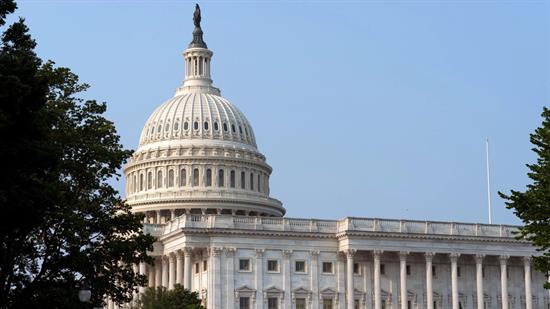Press Releases
Rouzer Joins Colleagues in Introducing Legislation to Counter the Chinese Communist Party's (CCP) Land Grab
Washington,
February 2, 2023
Tags:
Agriculture
WASHINGTON, DC - Today, Rep. David Rouzer (R-NC) joined Rep. Dan Newhouse (R-WA) and more than 40 of his House colleagues in the introduction of the Prohibition of Agricultural Land for the People’s Republic of China Act. This legislation would prohibit the purchase of public or private agricultural land in the United States by foreign nationals associated with the Government of the People’s Republic of China. “To allow China, governed by the Chinese Communist Party, to acquire farmland near and around key military and otherwise strategic areas of the United States, is as dumb as it gets,” said Rep. Rouzer. “Not only are these purchases of key areas of farmland a threat to our national security, but it is a threat to our food security as well. This must end, and I am proud to co-sponsor legislation to do just that.” “The Chinese Communist Party (CCP) is a threat to American democracy. The United States is engaged in a great power struggle with the CCP, and we must respond with tough policies that will protect our farmland and food supply chain, said Rep. Newhouse. “We should be taking every action we can to strengthen our domestic production while preventing our nation's strongest adversaries from having an advantage over our supply chain. I am proud to introduce this legislation alongside many of my House colleagues to keep the CCP from gaining a foothold from within our own borders.” The legislation has over 40 original cosponsors in the House of Representatives. Members of the House Select Committee on Strategic Competition between the U.S. and the CCP Reps. Dusty Johnson (R-SD), John Moolenaar (R-MI), Carlos Gimenez (R-FL), and Ashley Hinson (R-IA) have signed onto the legislation, in addition to: Reps. Brian Fitzpatrick (R-PA), Cathy McMorris Rodgers (R-WA), Guy Reschenthaler (R-PA), Randy Feenstra (R-IA), David Rouzer (R-NC), David Valadao (R-CA), Mariannette Miller-Meeks (R-IA), Bruce Westerman (R-AR), Pete Stauber (R-MN), Bill Johnson (R-OH), Bob Latta (R-OH), Mike Flood (R-NE), John Moolenaar (R-MI), Jack Bergman (R-MI), Maria Salazar (R-FL), Mark Amodei (R-NV), Mike Bost (R-IL), Mike Guest (R-MS), Scott Franklin (R-FL), Rep. Mike Flood (R-NE), Doug LaMalfa (R-CA), Lauren Boebert (R-CO), Tim Walberg (R-MI), Kelly Armstrong (R-ND), Bob Latta (R-OH), Matt Gaetz (R-FL), Julia Letlow (R-LA), Zach Nunn (R-IA), Rudy Yakym (R-IN), Jake Ellzey (R-TX), John Rutherford (R-FL), Blake Moore (R-UT), Chris Smith (R-NJ), Claudia Tenney (R-NY), Ryan Zinke (R-MT), Adrian Smith (R-NE), Chris Stewart (R-UT), Barry Moore (R-AL), Kay Cammack (R-FL), Ronny Johnson (R-TX), Gregory Murphy (R-NC), Jim Baird (R-IN), Lisa McClain (R-MI), and Ralph Norman (R-SC). Read the full text of the bill here. Background: Last Congress, Rep. Rouzer cosponsored the Prohibition of Agricultural Land for the People’s Republic of China Act to prohibit the purchase of public or private agricultural land in the United States by foreign nationals associated with the Government of the People’s Republic of China. Additionally, the legislation would prohibit the same associations from participating in any United States Department of Agriculture programs except food safety inspections. In September of 2013, the President of the People’s Republic of China and General Secretary of the Chinese Communist Party, Xi Jinping, announced China’s “grand political-economic project,” now known as the Belt and Road Initiative (BRI) or Debt Trap Diplomacy. Over the last decade, President Xi has and continues to invest billions into the Silk Road Economic Belt and the 21st Century Maritime Silk Road in Asia, Europe, Africa, and the Americas. Congress must take a stand and stop PRC investments in the United States as a matter of national security, food security, and economic security. The United States currently has laws on the books (Agricultural Foreign Investment Disclosure Act (AFIDA) of 1978), but it largely puts the onus on the purchasing party to self-report land purchases, and fines are rarely levied for misreporting or not reporting at all. The Prohibition of Agricultural Land for the People’s Republic of China Act would direct the President of the United States to take any necessary actions to prohibit the purchase of public or private agricultural land in the United States by foreign nationals associated with the Government of the People’s Republic of China. Additionally, the legislation would prohibit the same associations from participating in any United States Department of Agriculture programs except food safety inspections. |


